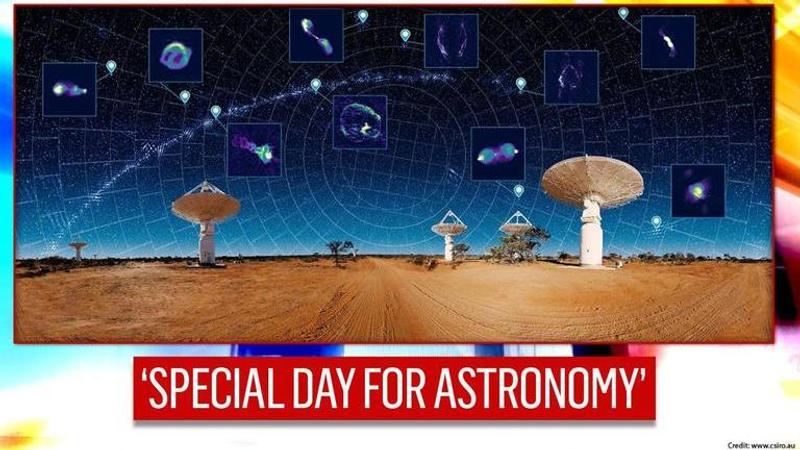Published 15:14 IST, December 1st 2020
Australian scientists map atlas of the universe with new telescope in record speed
A powerful new telescope developed by Australian scientists has mapped a million new galaxies in the desert, unlocking the inverses deepest secrets.

A powerful new telescope developed by Australian scientists has mapped a million new galaxies in the desert, unlocking the inverses deepest secrets. The CSIRO, Australia’s science agency, said that its new telescope had created “a new atlas of the universe” in record time, showing unprecedented detail. According to the official press release, the scientists mapped three million galaxies in total, with pictures revealing twice the level of detail of previous surveys.
The Australian Square Kilometre Array Pathfinder (Askap) broke records as it conducted the first survey of the entire southern sky. As per the press note, scientists used the telescope at an observatory in outback Western Australia to observe 83 per cent of the sky. CSIRO said that the mapping took just 300 hours and the result is a new atlas of the universe.
CSIRO’s chief executive, Larry Marshall said, “ASKAP is applying the very latest in science and technology to age-old questions about the mysteries of the Universe and equipping astronomers around the world with new breakthroughs to solve their challenges”.
She added, “It’s all enabled by innovative receivers developed by CSIRO that feature phased array feed technology, which see ASKAP generate more raw data at a faster rate than Australia’s entire internet traffic”.
The Australian scientists now expect to find tens of millions of new galaxies in future surveys. The Science Agency said that the result proves that an all-sky survey can be done in weeks rather than years. They further added that the instrument has a particularly wide field of view, enabling it to take panoramic pictures of the sky in high detail. The quality of the telescope’s receiver means the team only needed to combine 903 images to form a full map of the sky, CSIRO said.
‘Example of Australia’s radio-astronomy capability’
CSIRO’s custom-build telescope, Australian Square Kilometre Array Pathfinder (Askap), is a collection of 36 dish antennas which work together to take panoramas of the sky. The system is spread across a 6km area at the CSIRO’s Murchison observatory about 700m north of Perth. By combining signals from smaller dishes, the telescope creates high-resolution images at a fraction of the cost of one very large dish. The CSIRO said that huge volumes of data, generated at a faster rate than Australia’s entire internet traffic, are then sent to a supercomputer processing facility in Perth to create the images.
The federal science and technology minister, Karen Andrews, said Askap was an example of Australia’s world-leading radio astronomy capability. She said, "ASKAP is a major technological development that puts our scientists, engineers and industry in the driver’s seat to lead deep space discovery for the next generation”.
Updated 15:13 IST, December 1st 2020



